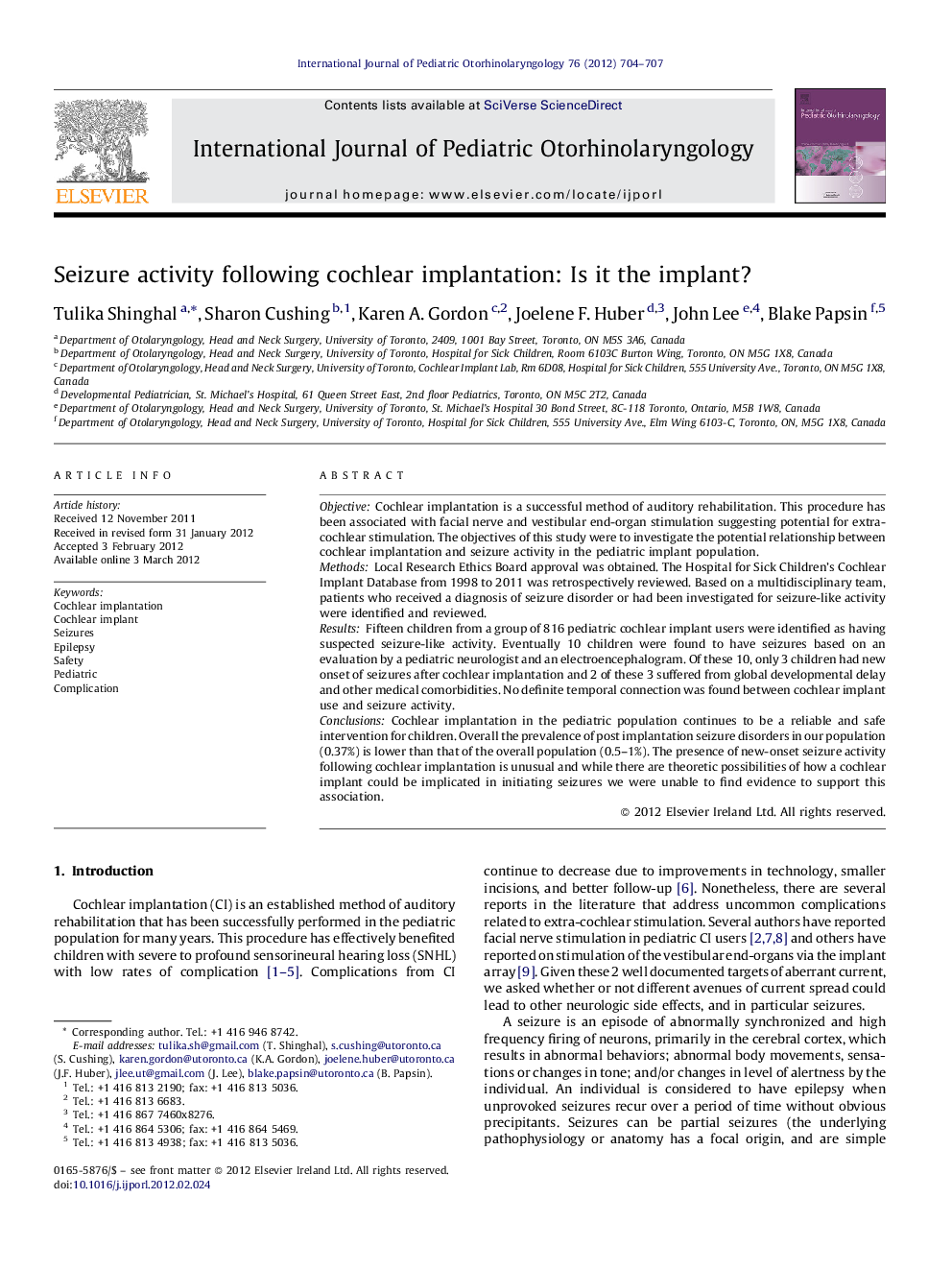| Article ID | Journal | Published Year | Pages | File Type |
|---|---|---|---|---|
| 4112780 | International Journal of Pediatric Otorhinolaryngology | 2012 | 4 Pages |
ObjectiveCochlear implantation is a successful method of auditory rehabilitation. This procedure has been associated with facial nerve and vestibular end-organ stimulation suggesting potential for extra-cochlear stimulation. The objectives of this study were to investigate the potential relationship between cochlear implantation and seizure activity in the pediatric implant population.MethodsLocal Research Ethics Board approval was obtained. The Hospital for Sick Children's Cochlear Implant Database from 1998 to 2011 was retrospectively reviewed. Based on a multidisciplinary team, patients who received a diagnosis of seizure disorder or had been investigated for seizure-like activity were identified and reviewed.ResultsFifteen children from a group of 816 pediatric cochlear implant users were identified as having suspected seizure-like activity. Eventually 10 children were found to have seizures based on an evaluation by a pediatric neurologist and an electroencephalogram. Of these 10, only 3 children had new onset of seizures after cochlear implantation and 2 of these 3 suffered from global developmental delay and other medical comorbidities. No definite temporal connection was found between cochlear implant use and seizure activity.ConclusionsCochlear implantation in the pediatric population continues to be a reliable and safe intervention for children. Overall the prevalence of post implantation seizure disorders in our population (0.37%) is lower than that of the overall population (0.5–1%). The presence of new-onset seizure activity following cochlear implantation is unusual and while there are theoretic possibilities of how a cochlear implant could be implicated in initiating seizures we were unable to find evidence to support this association.
